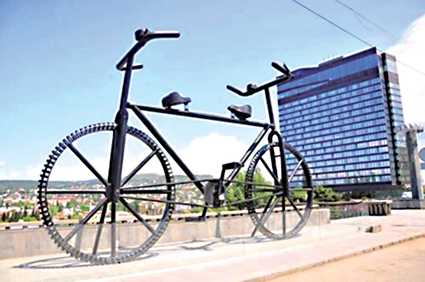Opposition Criticizes Initiative on Changing Name of Rose Revolution Square
The Georgian parliamentary opposition has criticized the government and Tbilisi City Hall for their recent initiative to change the name of the Rose Revolution Square, given to the Soviet-era square after the 2003 Rose Revolution.
The initiative of changing the name to ‘Democratic Republic Square,’ was discussed at the meeting of the Symbols Commission of the City Council (Sakrebulo) two days ago, and the sitting was left by opposition MPs in protest.
The opposition claims the decision is politically motivated, adding the government wants to erase one of the most important events of modern Georgian history, the Rose Revolution, which “totally changed the lives of Georgians.”
However, the government refutes the accusations and says the initiative is connected to the 100th anniversary of the establishment of the First Democratic Republic of Georgia on May 26.
The United National Movement (UNM), which in 2003 was the initiator of the Rose Revolution, says the government has no national motives in changing the name of the square. The UNM believes the ruling Georgian Dream (GD) wants to “re-write” history because they dislike the UNM and its founder, the 2003 revolution leader, Mikheil Saakashvili.
“It was a day when Georgian people won over corruption, crime and nepotism in which the country found itself during Shevardnadze's regime, so they do not have any national motives," UNM member Irakli Nadiradze said.
Another UNM MP, Nikoloz Vacheishvili, stated that celebrating the 100th anniversary is good but it should not damage other historical events of Georgia.
“The only motive for this initiative is to fight the people who organized the 2003 revolution,” he added.
Parliamentary minority European Georgia, which was once in the composition of the UNM, also criticizes the initiative.
“This is a very cheap political move and it completely neglects the expression of people’s free will,” Giorgi Gabashvili, member of the party, stated.
Tbilisi Mayor Kakha Kaladze welcomes the initiative. He stated that society will also be involved in the process and expressed hope that they will support this idea.
“Not only the name of the Rose Revolution Square but other locations and streets will also be renamed in connection to the 100th anniversary of the establishment of the First Democratic Republic,” he noted.
The final decision will be made at the Sakrebulo session in 20 days.
Rose Revolution Square in Tbilisi was once called Republic Square and has been the showcase of numerous regimes, conflicts and aspirations.
Georgia's changing political orientation has been continuously reflected in the dynamics of its capital's former Republic Square: from military parades, to soviet relics and a vertical refugee camp, to sanitized commercial functions.
The story goes back to the 1960s, when Soviet Georgia was one of the top tourist destinations of the USSR.
One side of the square was designed with a podium, standing tall with seven arches, the so called Andropov´s Ears, while the other side of the space endlessly expanded into the horizon, overlooking the city and the River Mtkvari.
In 1967, the construction of the tallest building in Tbilisi of the time was finished: Hotel Iveria, a 22-floor structure designed by the Georgian architect Otar Kalandarishvili in the very geographical center of Tbilisi and well visible from every point of the city.
After the breakup of the Soviet Union, Republic Square remained unchanged and continued to host state military parades just as before. However, it became one of the hot spots of the Georgian civil war in 1991-1992. In 1992, Hotel Iveria was made home to hundreds of refugee families from Abkhazia.
After the Rose revolution in 2003, the new UNM government removed Andropov’s Ears. The renovation of Hotel Iveria was also launched and the famous Radisson Blu Iveria hotel was opened there in 2011.
By Thea Morrison












